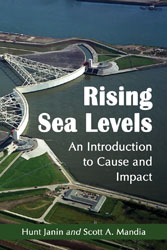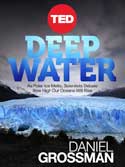[youtube]HW_PNMDyKL8[/youtube]
At long last: John Cook from Skeptical Science rejoins the Climate Show team for the first show of 2013. He hooks up with Glenn and Gareth to review Australia’s big heatwave, and stays around to dig into the new Greenpeace report on dirty energy, discuss Obama’s inauguration speech and Boris Johnson’s climate blunder, the latest scary news on sea level rise and the implications for the future. Plus much much more…
Watch The Climate Show on our Youtube channel, subscribe to the podcast via iTunes, listen to us via Stitcher on your smartphone or listen direct/download from the link below the fold.
Follow The Climate Show at The Climate Show web site, and on Facebook and Twitter.
Continue reading “The Climate Show #32: a Cook’s tour of the Aussie heat”

 Of all the consequences of human-caused global warming, sea level rise has always held special alarm for me in its inexorability, its extension into the future, and the enormous disruption it threatens to centres of high population and essential infrastructure. Scientist
Of all the consequences of human-caused global warming, sea level rise has always held special alarm for me in its inexorability, its extension into the future, and the enormous disruption it threatens to centres of high population and essential infrastructure. Scientist  Geoff Simmons and Gareth Morgan, with help from John McCrystal, have produced a book which one hopes will be read by many New Zealanders.
Geoff Simmons and Gareth Morgan, with help from John McCrystal, have produced a book which one hopes will be read by many New Zealanders. 